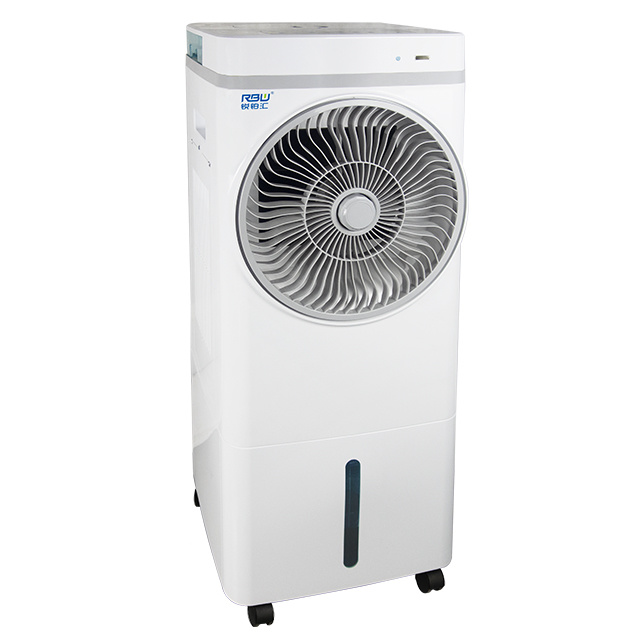News
Quiet Air Coolers vs. Traditional Fans: Which is the Ultimate Choice for Your Bedroom?
Time:
2025-09-24
Quiet Air Coolers vs. Traditional Fans: Which is the Ultimate Choice for Your Bedroom? Cooling your bedroom is essential for a good night's sleep, especially during sweltering summer months. Two popular options for achieving the desired comfort level are **quiet air coolers** and **traditional fans**. But which is the best choice for your needs? In this article, we will delve into the features, be
Quiet Air Coolers vs. Traditional Fans: Which is the Ultimate Choice for Your Bedroom?
Cooling your bedroom is essential for a good night's sleep, especially during sweltering summer months. Two popular options for achieving the desired comfort level are **quiet air coolers** and **traditional fans**. But which is the best choice for your needs? In this article, we will delve into the features, benefits, and drawbacks of both cooling options, helping you make an informed decision.
Table of Contents
- Understanding Cooling Solutions: An Overview
- What is a Quiet Air Cooler?
- Benefits of Quiet Air Coolers
- What is a Traditional Fan?
- Benefits of Traditional Fans
- Key Differences Between Quiet Air Coolers and Traditional Fans
- Energy Efficiency and Costs
- Noise Levels: Which is Quieter?
- Which is Best for Your Bedroom?
- FAQs
- Conclusion
Understanding Cooling Solutions: An Overview
Before we dive into the specifics of quiet air coolers and traditional fans, it's important to understand what each option brings to the table in terms of cooling solutions for your living space. Both have distinct mechanisms and functionalities designed to improve air circulation and maintain a comfortable temperature.
What is a Quiet Air Cooler?
A quiet air cooler is designed to provide efficient cooling by using **evaporative cooling** technology. Unlike traditional fans that merely circulate ambient air, quiet air coolers lower the temperature of the air through the evaporation of water. This is achieved by drawing warm air through moistened pads, where it cools before being released into the room.
How Does a Quiet Air Cooler Work?
The process is straightforward:
1. **Water is added** to the cooler's reservoir.
2. A fan draws warm air into the unit.
3. As the air passes through the moistened pads, it cools down via evaporation.
4. The cooled air is then released into the room, creating a refreshing breeze.
Benefits of Quiet Air Coolers
Quiet air coolers come with several advantages that make them a compelling choice for bedroom use:
1. **Energy Efficiency**
Quiet air coolers typically consume less energy compared to traditional air conditioning units. This results in lower electricity bills, making them a cost-effective solution for maintaining a comfortable bedroom temperature.
2. **Humidity Control**
By introducing moisture into the air, quiet air coolers can help manage humidity levels, creating a more comfortable environment. This is particularly beneficial in dry climates.
3. **Reduced Noise Levels**
Many quiet air coolers operate at lower noise levels compared to traditional fans. This makes them ideal for use while sleeping or working, providing a peaceful atmosphere without disruptive sounds.
4. **Environmentally Friendly**
Quiet air coolers use natural processes to cool the air, making them an eco-friendly option. They do not rely on harmful refrigerants and contribute to less energy consumption.
What is a Traditional Fan?
A traditional fan, commonly found in homes, is a mechanical device designed to circulate air within a space. It typically consists of blades that rotate around a central hub, creating airflow that cools the body by increasing the evaporation of sweat.
Types of Traditional Fans
Traditional fans come in various forms, including:
- **Ceiling Fans**: Mounted on the ceiling, ideal for circulating air in larger rooms.
- **Table Fans**: Portable and adjustable, suitable for personal cooling.
- **Floor Fans**: Standing fans that can be moved around and often provide stronger airflow.
Benefits of Traditional Fans
Traditional fans also offer numerous advantages:
1. **Affordability**
Generally, traditional fans are less expensive upfront compared to quiet air coolers. This makes them accessible for those on a budget.
2. **Simplicity**
Traditional fans are easy to use and require minimal setup. Simply plug them in and turn them on for immediate airflow.
3. **Versatility**
Fans can be used in various settings, from bedrooms to living rooms, and can easily be repositioned as needed.
4. **Immediate Relief**
Fans provide instant airflow, which can feel refreshing even during high temperatures, making them an excellent choice for quick relief.
Key Differences Between Quiet Air Coolers and Traditional Fans
When comparing quiet air coolers to traditional fans, several critical differences come to light:
1. **Cooling Mechanism**
While traditional fans simply circulate ambient air, quiet air coolers actively cool the air, resulting in a more significant temperature change.
2. **Energy Consumption**
Quiet air coolers tend to consume less energy than traditional fans, making them more cost-effective in the long run.
3. **Noise Levels**
Quiet air coolers operate at lower noise levels compared to many traditional fans, making them ideal for quiet environments like bedrooms.
4. **Humidity Control**
Quiet air coolers add moisture to the air, which can be beneficial in dry conditions, while traditional fans do not affect humidity levels.
Energy Efficiency and Costs
When it comes to cooling a bedroom, energy efficiency and cost are major factors to consider.
Initial Cost and Installation
Traditional fans are generally less expensive to purchase than quiet air coolers. They also require no installation beyond plugging them in, making them an appealing option for budget-conscious consumers.
Ongoing Costs
Quiet air coolers, while initially pricier, can save you money in energy costs over time. They often use less electricity, translating into lower monthly utility bills.
Noise Levels: Which is Quieter?
A sound sleep is crucial for overall health, so the noise levels of your cooling solution are important.
Quiet Air Coolers
Many modern quiet air coolers are designed to operate at very low noise levels, making them suitable for bedrooms, particularly for light sleepers.
Traditional Fans
While some fans are relatively quiet, others can produce noticeable noise, especially at higher settings. This can be distracting when trying to sleep.
Which is Best for Your Bedroom?
The decision between a quiet air cooler and a traditional fan ultimately depends on your personal preferences and specific bedroom conditions.
When to Choose a Quiet Air Cooler
- **You live in a dry climate**: The added humidity can create a more comfortable environment.
- **Energy efficiency is a priority**: Lower electricity bills can make a significant difference in long-term costs.
- **You need a quieter solution**: If you are sensitive to noise, a quiet air cooler may be the better option.
When to Choose a Traditional Fan
- **You are on a tight budget**: Traditional fans are more affordable and readily available.
- **You need immediate cooling**: Fans provide instant airflow without any setup time.
- **You prefer versatility**: Traditional fans can be easily moved and used in various locations within your home.
FAQs
1. Can I use a quiet air cooler and a fan together?
Yes, using both can maximize cooling efficiency. The fan can help distribute the cooled air from the cooler throughout the room.
2. Do quiet air coolers require regular maintenance?
Yes, they need regular cleaning of the water reservoir and pads to ensure optimal performance and prevent mold growth.
3. Are traditional fans energy-efficient?
Yes, traditional fans consume less energy compared to air conditioning units, but they may not be as energy-efficient as quiet air coolers.
4. How do I determine the right size for a quiet air cooler?
Choose a cooler based on the size of your room. Most manufacturers provide guidelines on the appropriate unit size for different room dimensions.
5. Can quiet air coolers be used in humid climates?
Quiet air coolers are less effective in humid climates, as they rely on evaporation to cool the air. In such areas, traditional fans may be a better option.
Conclusion
Choosing between quiet air coolers and traditional fans for your bedroom ultimately hinges on your unique needs and preferences. If you value energy efficiency, noise reduction, and humidity control, a quiet air cooler may be your best bet. However, if you seek affordability, simplicity, and immediate cooling relief, a traditional fan could serve you well. We encourage you to assess your bedroom conditions and personal preferences carefully to make the most suitable choice for your comfort.
Related News
Share to
Are you ready?
Start your project now!








